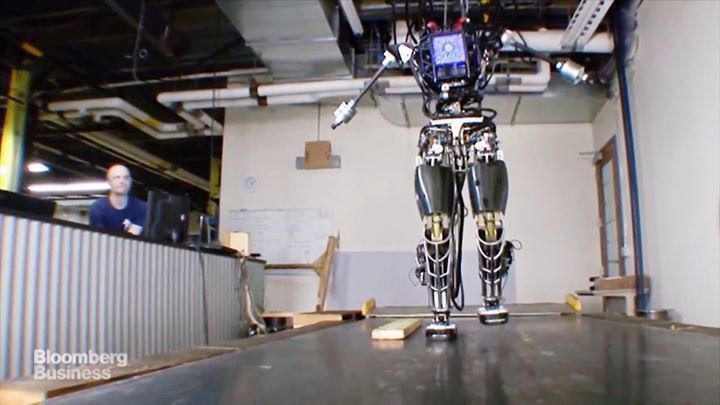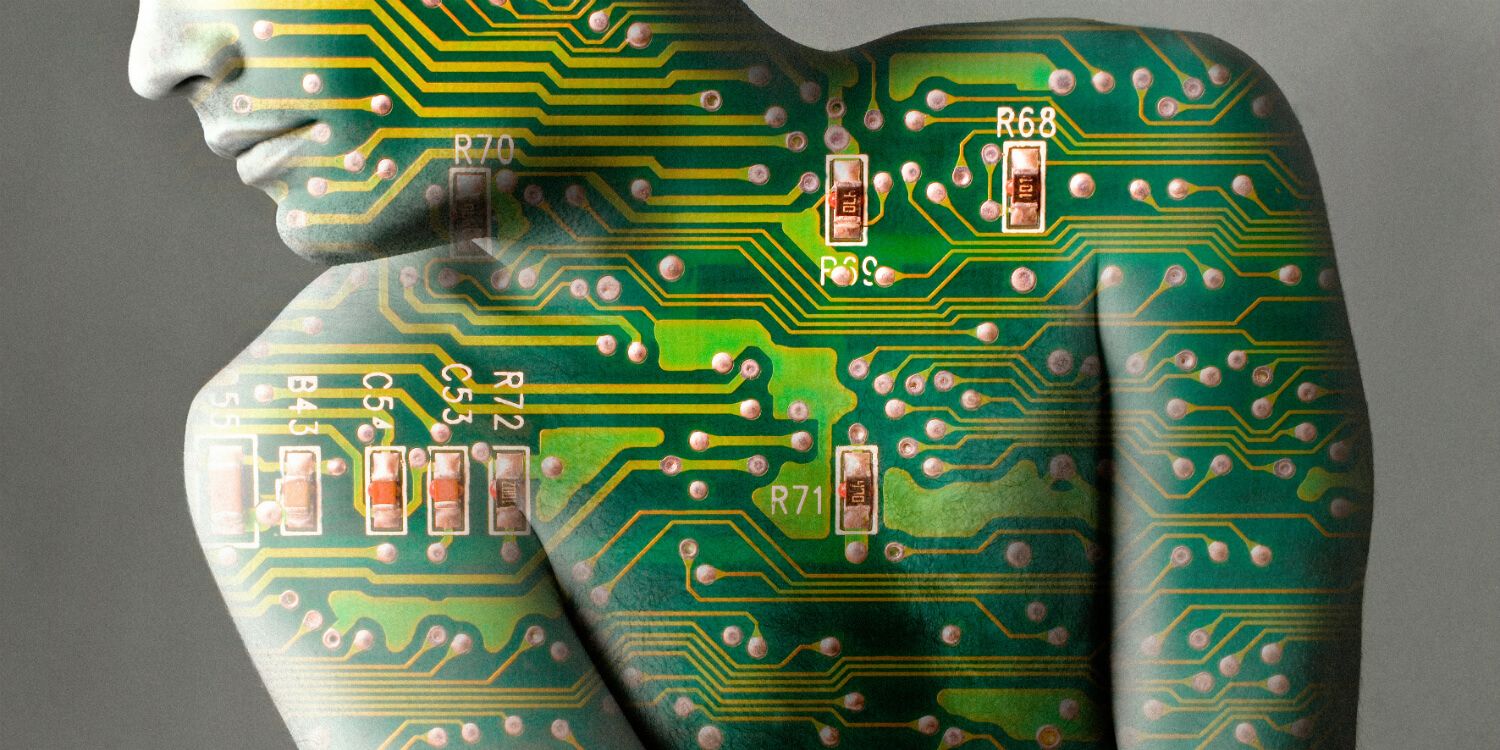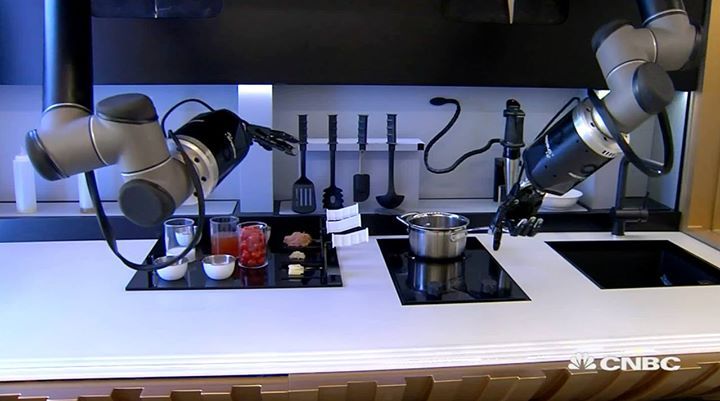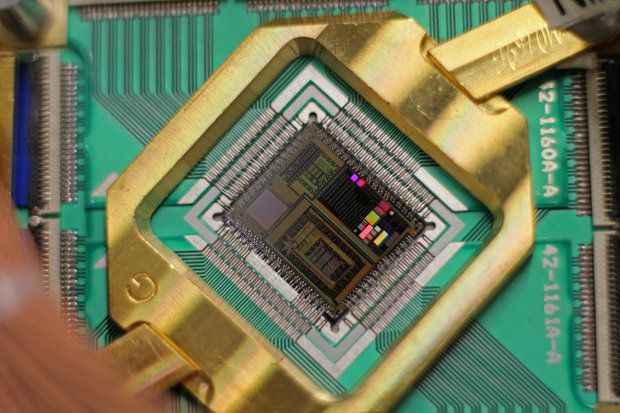


On the cusp of a far-reaching revolution thanks to the advances in artificial intelligence and computing, it’s easy to feel a bit…concerned. Well, maybe more than just a bit, especially if you consider societal attitudes about technology.
Truth is that the way we perceive the world around us is conditioned to a degree by the environment we grow up within. There’s also little doubt that certain cultures are more open and adaptive to technology than others. But one could argue that the potential enhancements that AI could usher in are so dramatically advanced that even the earliest adopters within Silicon Valley aren’t really prepared for what’s coming.
So it’s safe to ask, before this great wave of artificial intelligence arrives and we become fully integrated with it, shouldn’t we strive to change our inherited mental models and let go of antiquated thinking patterns?

The truck has smart systems including radars, cameras and active speed regulators and works without a human driver — although one has to be in the driver’s seat and take the wheel if necessary.
The standard Mercedes-Benz Actros, fitted with the intelligent “Highway Pilot” system, travelled 14 kilometres (about nine miles) on the A8 motorway, with a driver in the cabin but his hands off the wheel.
“Today’s premiere is a further important step towards the market maturity of autonomously driving trucks -– and towards the safe, sustainable road freight transport of the future,” said Wolfgang Bernhard, board member responsible for Daimler Trucks and Buses.


A few weeks ago, a drunk man in Japan was arrested for kicking a humanoid robot that was stationed as a greeter at a SoftBank, Corp., store, which develops the robots. According to the police report, the man said he was angry at the attitude of one of the store clerks. The “Pepper robot” now moves more slowly, and its internal computer system may have been damaged.
Under current Japanese law, the man can be charged with damage to property, but not injury, since injury is a charge reserved for humans. Dr. Yueh-Hsuan Weng, who is cofounder of the ROBOLAW.ASIA Initiative at Peking University in China, and former researcher of the Humanoid Robotics Institute at Waseda University in Japan, thinks a better charge lies somewhere in between.
Weng is advocating for special robot laws to address the unique nature of human-robot interactions. He argues that humans perceive highly intelligent, social robots like Pepper (which can read human emotions) differently than normal machines—maybe more like pets—and so the inappropriate treatment of robots by humans should be handled with this in mind.

Google and NASA are continuing to test quantum computers and this week entered into a new agreement to work with a series of updated systems.
D-Wave Systems, a quantum computing company based in Burnaby, British Columbia, announced this week that it had signed a deal to install a succession of D-Wave systems at NASA’s Ames Research Center in Moffett Field, California. NASA and Google on Wednesday also confirmed the deal.
NASA and the Universities Space Research Association (USRA) are collaborating on the project, which is focused on advancing artificial intelligence and machine learning.

Microsoft first released Skype Translator almost a year ago as a standalone app designed for Windows 8. The software giant is now integrating its impressive translation feature directly into the desktop version of Skype, opening it up to Windows 7, Windows 8, and Windows 10 users. Six voice languages will be supported at launch, including English, French, German, Italian, Madarin, and Spanish. Skype will now let you hold a conversation in any of them, without ever needing to learn a language.
“It has been a long-time dream at Skype to break down language barriers and bring everyone across the globe closer together,” explains Microsoft’s Skype team. “Researchers, engineers, and many others across Microsoft have been working hard to make this dream a reality and we are looking forward to bringing this preview technology to more devices.”


Once we’re cyborgs, he says, we’ll be funnier, sexier and more loving.

The word on every tech executive’s mouth today is data. Curse or blessing, there’s so much data lying around – with about 2.5 quintillion bytes of data added each day – that it’s become increasingly difficult to make sense of it in a meaningful way. There’s a solution to the big data problem, though: machine learning algorithms that get fed countless variables and spot patterns otherwise oblivious to humans. Researchers have already made use of machine learning to solve challenges in medicine, cosmology and, most recently, crime. Tech giant Hitachi, for instance, developed a machine learning interface reminiscent of Philip K. Dick’s Minority Report that can predict when, where and possibly who might commit a crime before it happens.